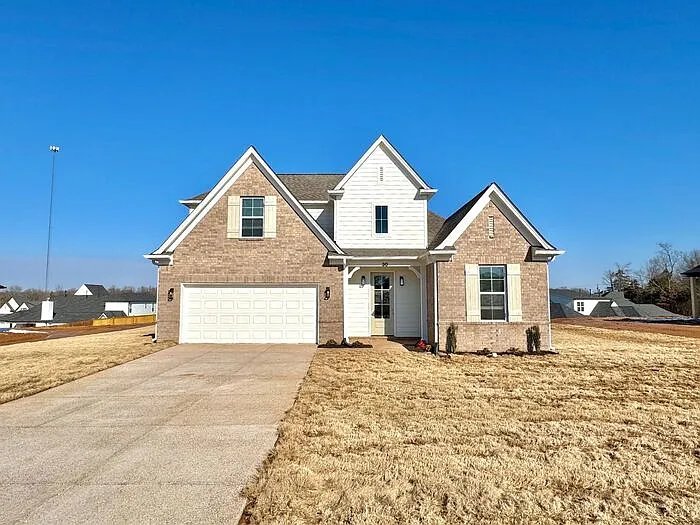As the COVID crisis continues, I thought it appropriate to provide you with both our near-term and longer-term view of the situation and how it is affecting investment real estate in Memphis.
I have been an avid reader of both the national news and the local Memphis news. I meet daily with our leadership and our property management teams to not only work on client issues, but to look for patterns in what is happening in our local Memphis market. I have also been meeting weekly with members of my local CEO group and a nationally-based group of real estate investment industry CEO’s to discuss the COVID crisis and how it has affected their businesses.
COVID has been both a health and an economic threat on an unprecedented scale in modern times. Most of the current news about infection rates and death rates in the U.S. has been dismal, and I expect that it will continue to be so for a few more weeks. I also believe that we took the critical steps to tamp down the infection and death rates through social distancing, wearing protective gear, and following the advice of the medical community. As we have seen in China, those measures appear to be working, as China has begun to return to work. We are starting to see the first evidence that the infection rates have begun to fall in Italy and Spain. I believe that later this month we will begin to see evidence that the extraordinary health protection measures we have taken will begin to work in the United States, too.
Our government, upon fully grasping the enormity of the crisis, moved decisively to bridge the economy through the hardest economic part of this crisis, passing a number of programs aimed at getting cash and liquidity to individuals, businesses, and the financial markets. These programs are buying much-needed time for our economy until we can go back to work as a nation.
In speaking with my colleagues in real estate, I observe that the crisis seems to be very regional in terms of its impact and is also largely a function of the tenant demographic in each metro area. The areas that have high-density housing, such as New York and New Orleans, have large populations in the service and hospitality sectors working at close quarters to other people, and they have been strongly affected. I also observe that the lower-income tenant demographic has had the most economic difficulty, as they have greater exposure to the service industry and have limited economic means to weather an interruption to their income.
With respect to our tenants in Memphis, the COVID impact has not been as great thus far. By the end of March, we collected 99.6% of the rents owed, down slightly from 99.9% in February, but still good. As of 6:00p CDT on April 6th, we collected 89.2% of the rents owed, which is actually somewhat higher than normal for the 6th day of a month. While we had a number of inquiries asking about rent deferrals, we’ve had fewer than 15 tenants actually apply for a rent deferral, or less than 2% of the total number of tenants. Our leasing team reports that rental activity remains strong and that they have not observed a change in showings, applications, or price sensitivity on rents through the past weekend. We are still seeing both investors and retail home buyers putting properties under contract, although the level of investor inquiries has slowed.
I believe there are four main reasons for these positive results:
- The Memphis economy has higher than average employment in the logistics and the medical industries, which have been less impacted by COVID, and lower exposure to the service sector. Therefore, more tenants have retained their ability to pay rent.
We specialize in Class A properties, which have higher than average rents and require tenants to have higher incomes to be able to rent them. Those higher incomes generally come from employment outside of the service and hospitality sectors of the economy, so these tenants were less affected by COVID. - Our property management company uses more aggressive underwriting criteria than average before we accept applicants to become tenants. We believe that the tenants we accept have much more “solid” jobs and are more responsible about managing their finances.
We have been proactive in making tenants aware of the financial resources available to them that will assist them in the short term, such as the government stimulus payments and expanded access to unemployment benefits. Those payments will have a larger impact in a market like Memphis, where rents are less expensive than in most markets. - Time will tell how the COVID pandemic will truly play out in the coming weeks, but the initial results for our investors and tenants are relatively positive under the circumstances. I expect that as the health news improves and some of the restrictions relax, we will see some more stability in the financial markets and a material boost in employment. Interest rates, which are already low, should stay stable or decline somewhat, which will support housing prices and improve cash yields for investors.
For our part, we will continue to monitor the developments and manage the changes as they occur. Right now we are optimistic enough to continue our new construction operations unabated, as we believe the pandemic will resolve and the fundamentals that make the single-family asset class an excellent investment will predominate, particularly in the Memphis market. As a nation, I believe we have taken the essential steps that were needed and have the will to overcome our adversity.
I will continue to send you regular updates. Please stay safe and cherish your loved ones.
Kevin Conlon
Principal
Meridian Pacific Properties / Meridian Property Management
Please Share This Article
If you enjoyed this article, please share it. We appreciate your support and referrals.
Talk To The Author
Brian Conlon is the Director of Business Development at Meridian Pacific Properties. With years of experience in real estate investing and turnkey property management, Brian specializes in helping investors optimize cash flow, plan for long-term property performance, and navigate the complexities of real estate investing.
Schedule a consultation with Brian to learn more about investing in SFR investment properties.







